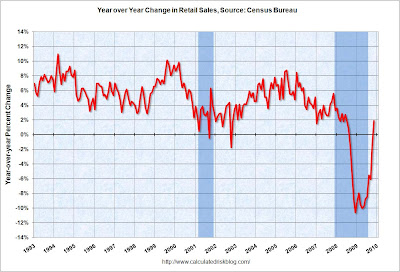Home » 2009 (Page 2)
Yearly Archives: 2009
What to expect at Copenhagen
Interview of Jacob Kirkegaard, a Danish research fellow at Peterson Institute for International Economics.
On China’s exchange rate policy
Martin Wolf says China must appreciate its currency otherwise the world is heading for train wreck.
Jim O'Neill, Chief Economist at Goldman Sachs, counters that after almost 17% appreciation during the past few years, he is not sure Chinese Yuan is still undervalued. He is asking people to look at the evidence on the ground that China is actively restructuring its economy and China's domestic consumption is fast rising.
Dani Rodrik of Harvard University argues while most people focus on China's exchange rate, nobody is offering China a way out of its currency dilemma, and China is in no position to revalue its currency as demanded, as a large Yuan appreciation, say 25%, will kill China's economic growth by 2%.
The bottom line is China can't rely on export as its sole growth engine in the future; and the rest of the world should not blame all problems to China's currency policy.
Jim Rogers on dollar and gold
Rogers thinks US dollar is due for a short-term rally and that means gold will enter a consolidation stage. His long term prediction of gold price stays firm: it will at least increase to a couple of thousand dollars.
He is a true contrarian investor.
Warren: The coming collapse of American middle class
Elizabeth Warren spoke at UC Berkeley’s Jefferson Memorial Lecture:
Personally, I think the prediction is over-exaggerated. But it’s a refreshing speech.
House flipping, again?
House flipping came back again, in new fashion: the flippers for foreclosed homes. Read this WSJ report. Here are some exerpts:
The minimum bid, as set by a unit of Citigroup Inc., which had a $1.3 million mortgage on the home, was $379,900. After several minutes of bidding among investors and their representatives, some wearing shorts and flip-flops, Mr. Mirmelli won the home for $486,300. A week later, he agreed to sell it for $690,000 to a woman who moved in this month.
…
Flippers swoop in at public auctions of foreclosed homes, known as trustee or sheriff sales. In many states, the lender sets the minimum bid, and takes possession of the property only if no one bids more. In the past, the minimum generally was about equal to the mortgage balance due. But in today's market, in which many home values have dropped far below the loan balance, lenders wouldn't attract investors if they set the minimum at that level.
…
Sean O'Toole, chief executive officer of ForeclosureRadar.com, a research firm, estimates that in November about 21% of homes sold in trustee sales in California went to investors rather than to a foreclosing lender, up from 6% a year earlier. The trend is similar in some other areas with high foreclosure rates, including Phoenix and Miami.
…
The risk for banks is that if they set the minimum bid too low, the home might end up selling for much less than they could reap if they took ownership of it and sold it themselves. But with some 7.5 million U.S. households behind on their mortgage payments or in foreclosure, many lenders are overwhelmed. They're negotiating with distressed borrowers and figuring out how to sell the growing supply of foreclosed homes.
"The banks are so screwed up," says Mr. Mirmelli, the Phoenix investor, that they don't always have a clear idea of the value of the property they are foreclosing on.
Unemployment snapshot since recession began
CHANGE IN TOTAL NONFARM EMPLOYMENT
December 2007 through October 2009
click to enlarge, Chart via Office of Thrift Supervision



